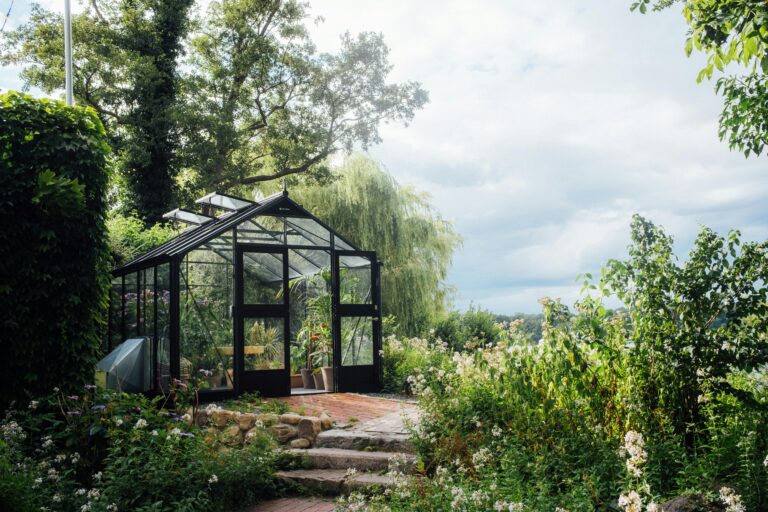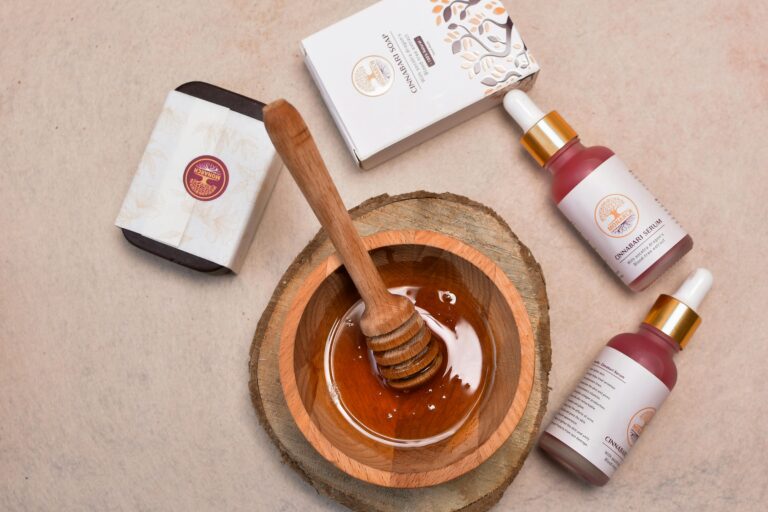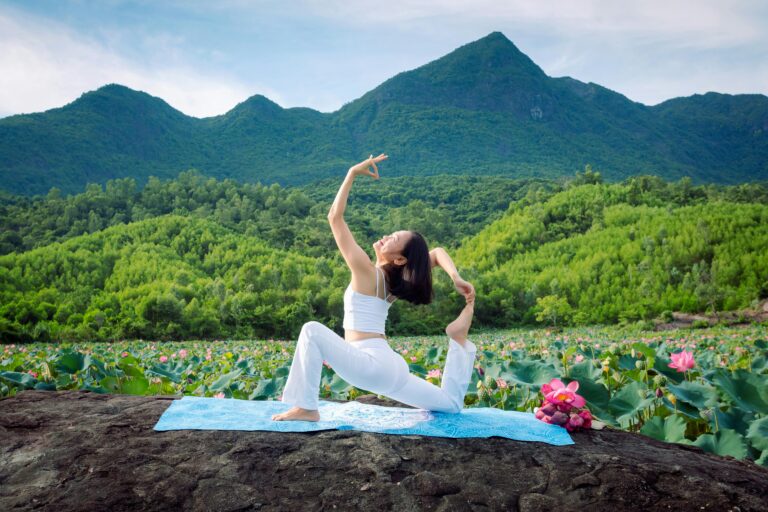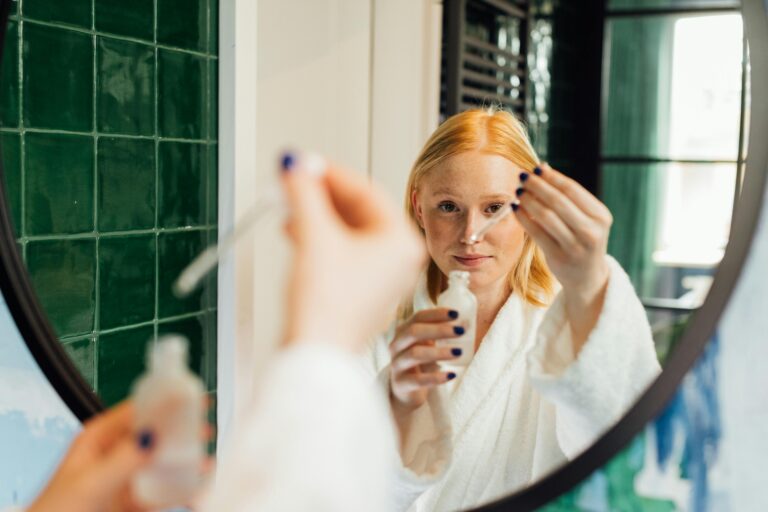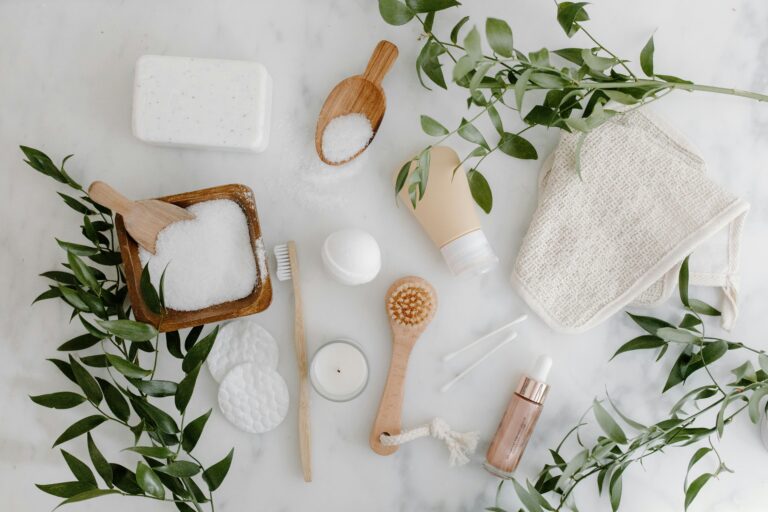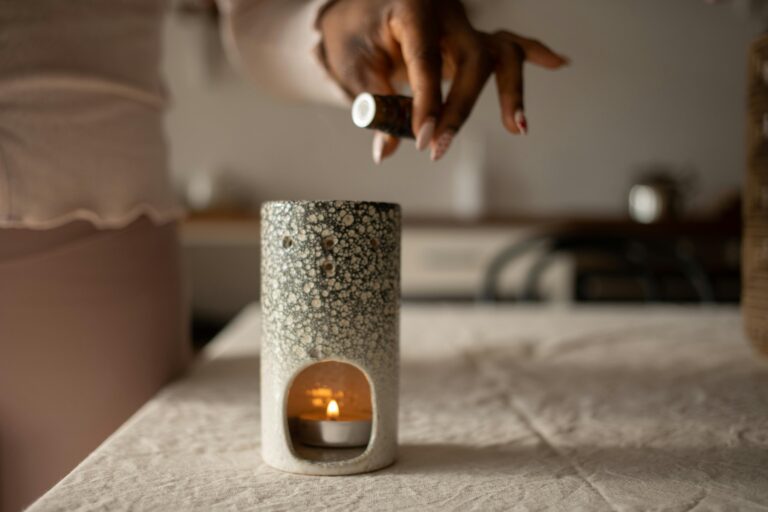Holistic Health 101: Discover the Path to Lasting Wellness
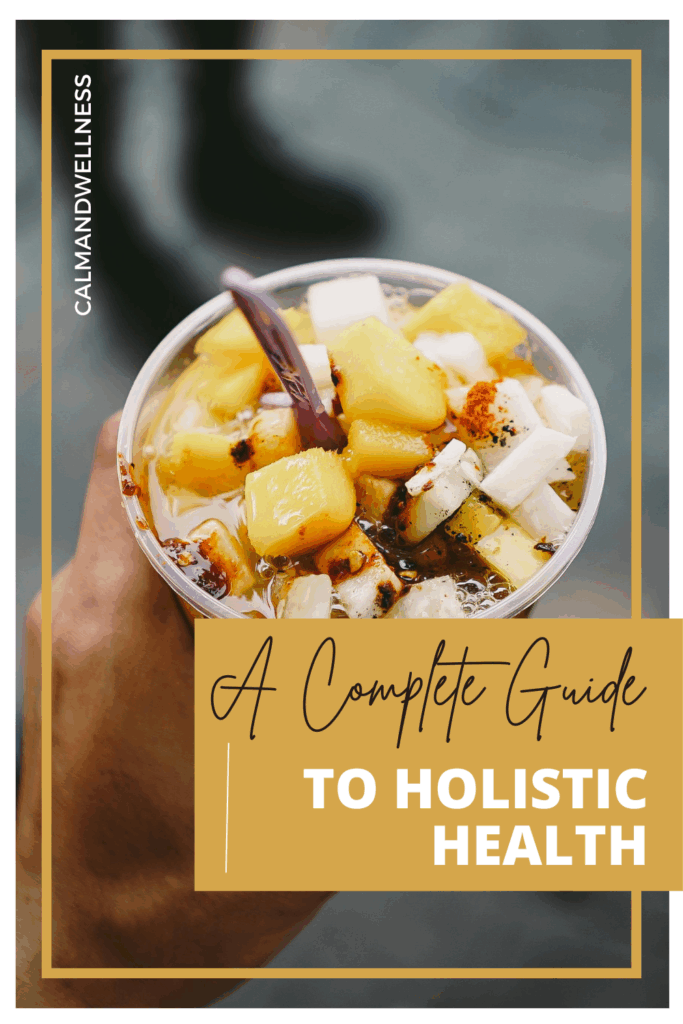
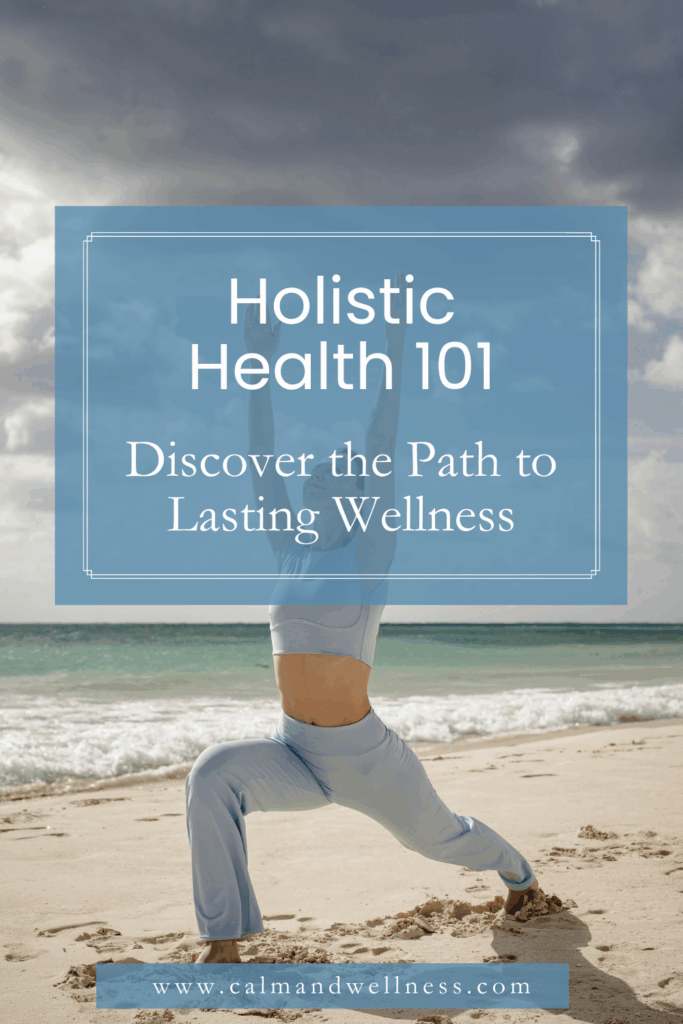
Today, we’re exploring the foundations of holistic health a gentle, balanced approach to nurturing your mind, body, and spirit.
In today’s fast-paced world, it’s easy to feel disconnected rushing from task to task, juggling responsibilities, and often neglecting what truly matters: our well-being.
The holistic health approach offers a different path, one that focuses on the WHOLE person.
May this guide be your starting point to embracing a more mindful, balanced, and empowered lifestyle.
This site contains affiliate links, view the disclosure for more information.
1. First Things First: What Exactly Is Holistic Health?
At its heart, holistic health is about seeing yourself as a beautifully interconnected being.
It’s an approach to wellness that embraces the full picture, you are not just a body, a mind, or a soul, but all three, working together in harmony.
Instead of treating symptoms in isolation, holistic health focuses on understanding the root causes and how different aspects of your life nutrition, emotions, relationships, environment, affect your overall well-being. It’s a shift from “fixing” to listening, from “doing” to being.
Think of it as weaving together physical care, emotional nourishment, spiritual practices, and mindful living to create a more centered, joyful way of life.
The principles of holistic health have roots in ancient healing traditions from around the world, including Traditional Chinese Medicine and Ayurvedic practices, which have recognized for thousands of years that health is a dynamic state of balance.
Modern holistic approaches integrate this ancient wisdom with contemporary scientific understanding, creating a comprehensive framework for wellbeing.
2. Debunking the Myths: What Holistic Health Is Really About
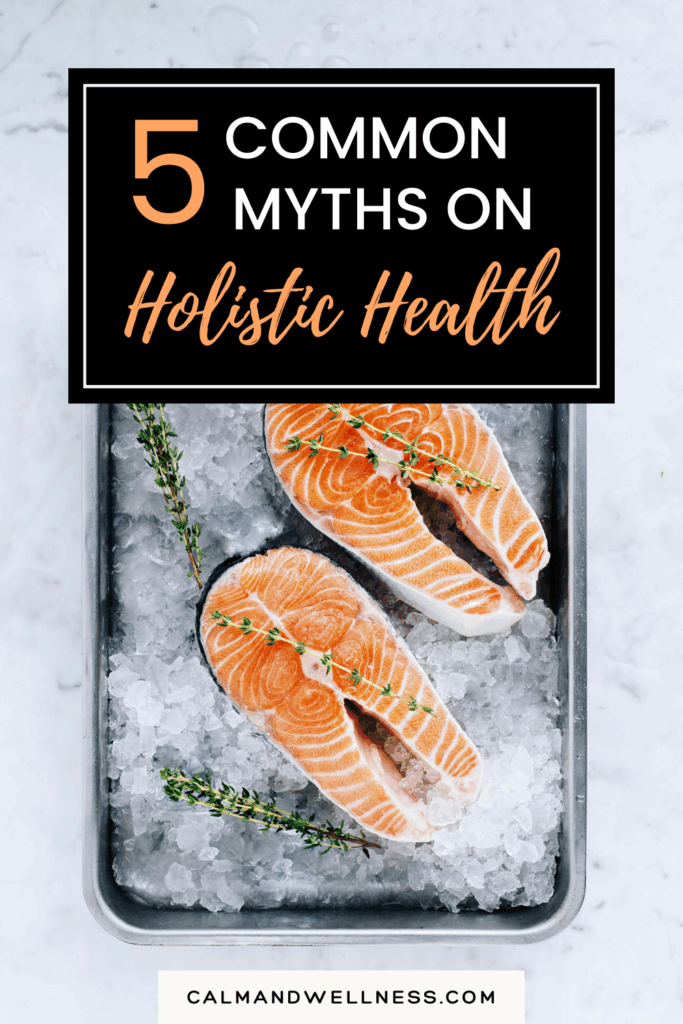
In the journey toward holistic wellness, many people encounter misconceptions that can create unnecessary barriers or confusion. Let’s examine some common myths about holistic health:
3. The 5 Pillars of Holistic Health
1. Physical Wellness
The foundation of holistic health begins with how we NOURISH, MOVE, and CARE for our bodies—with love, intention, and presence. At the heart of this rhythm lie four gentle principles:
🧿 Whole foods nutrition provides your body with the essential nutrients, you can focus on nutrient-dense, whole foods to fuel your body and support long-term health
🧿 Restorative sleep and proper rest cycles are CRUCIAL for allowing your body time to heal, recover, and recharge.
Quality sleep plays a key role in maintaining both mental and physical health, ensuring you wake up refreshed and energized.
🧿 Regular movement is vital for building functional strength and overall vitality, try with yoga, walking, dancing, somatic workout or strength training
🧿 Preventive care and regular health monitoring are essential for maintaining optimal health
2. Mental Wellness
A clear, peaceful mind is one of the most precious gifts we can give ourselves !
Our cognitive health is deeply intertwined with how we feel, how we respond, and how we move through the world, the mind-body connection is everything! Shifting into:
🧿 positive thought patterns,
🧿 practicing emotional awareness,
🧿and embracing brain-loving habits (like journaling, affirmations, or even a quiet cup of tea),
can reshape how we face life’s ups and downs. And just as important as staying sharp is knowing when to pause. Rest is not a luxury—it’s a vital part of keeping your mind resilient, refreshed, and deeply aligned with your overall well-being.
A clear, balanced mind supports emotional stability and physical health, key aspects of cognitive wellness include:
- Stress management techniques such as mindfulness meditation to help calm mental chatter and reduce anxiety
- Cognitive flexibility and continuous learning to keep the brain sharp and adaptable
- Healthy thought patterns supported by positive affirmations, brain-boosting practices, and emotional regulation
- Balance between productivity and mental rest, ensuring you don’t burn out and give your brain time to recover
3. Emotional Wellness
Our emotional world is tender, rich, and deeply connected to how we experience our life.
The way we process and express our feelings shapes not only our inner landscape but also the health of our body and spirit, when we begin to gently tune in to our emotions—with honesty and compassion—we lay the groundwork for true EMOTIONAL BALANCE.
Joy, sadness, anger, love—each one has something to teach us, but remember, emotional resilience doesn’t mean always feeling good, it means feeling fully, and knowing how to move through both light and shadow with grace.
How we process and express our feelings creates our emotional landscape:
- Developing emotional intelligence and awareness
- Healthy expression of feelings rather than suppression
- Cultivating positive emotional states while honoring difficult emotions
- Building emotional resilience for life’s challenges
Nurturing your emotional well-being might look like journaling to clear the fog, speaking your truth with healthy boundaries, or turning to healing practices like EFT or breathwork to release stored tension.
Even a few quiet minutes to acknowledge how you feel can bring deep relief !
4. Spiritual Wellness
Let’s discuss…..spirituality!
Spiritual wellness is the quiet thread that weaves MEANING, PURPOSE, and CONNECTION into our everyday lives, it’s not about following a specific path, it’s about discovering your own.
Begin by reconnecting with what truly matters to you:
🧿 What lights you up?
🧿 What feels meaningful?
It might look like sitting in stillness with a cup of tea, walking barefoot on the earth, or lighting a candle as a daily ritual of intention.
Connecting to something greater than ourselves provides meaning and purpose:
- Developing personal values and a sense of purpose
- Practices that connect you to deeper meaning
- Cultivating gratitude and wonder
- Finding community that shares your values
Spiritual wellness also lives in the SIMPLE MOMENTS, pausing to notice the warmth of sunlight, expressing gratitude for the little things, or feeling awe under a starlit sky.
5. Environmental/ Social Wellness
And least but not last….our relationship with others.
Our relationships are the heartbeats of our lives, the quiet threads that tie us to love, support, and shared moments.
Building and nurturing meaningful relationships creates a sense of BELONGING that supports us through both the highs and lows, these bonds remind us that we’re not alone, that we’re part of something larger.
Our relationships and community connections are vital health determinants:
- Building a supportive community network
- Cultivating deep, meaningful relationships
- Contributing to others and practicing compassion
- Setting healthy boundaries in relationships
Giving to others through compassion, kindness, or simply showing up with presence not only deepens our relationships, it feeds our own sense of purpose and joy AND at the same time, healthy boundaries are essential!
They create space for mutual respect, emotional safety, and authentic connection, allowing us to give and receive from a place of balance.
4. Getting Started with Your Holistic Journey
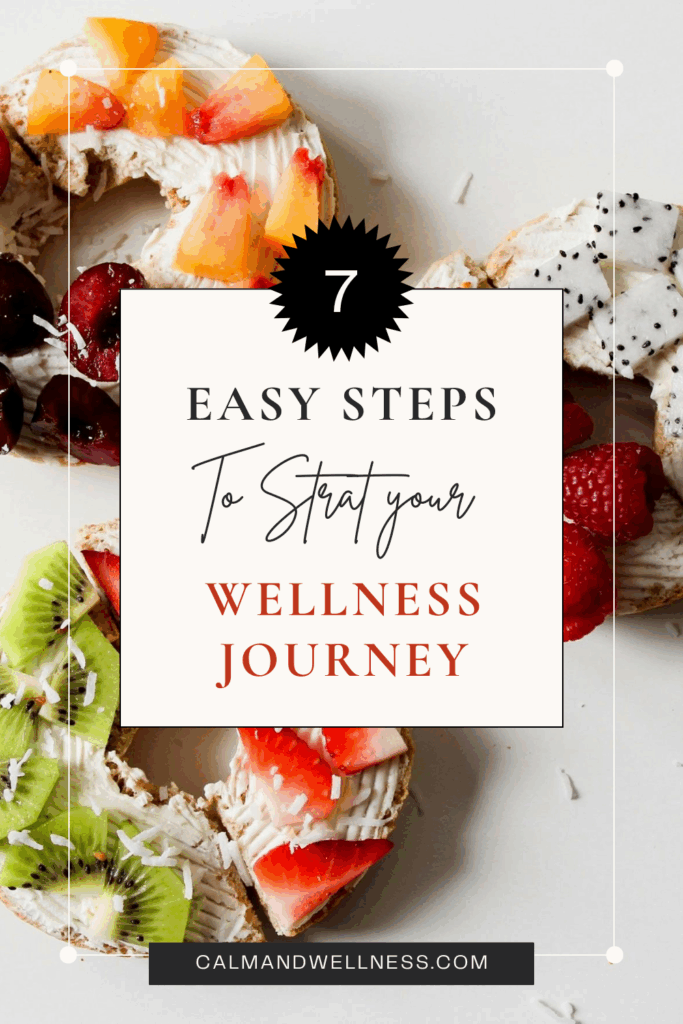
1. Assessing Your Current Wellness Baseline
Where are you?
Before jumping into new habits or routines, take a moment to check in with yourself, ask yourself:
- Where are you at right now—physically, emotionally, mentally, and spiritually?
- How’s your energy lately?
- Do you feel emotionally steady or easily thrown off?
- Is your mind clear or kind of all over the place?
- Are you feeling connected to something bigger or a bit lost in the day-to-day?
There’s no right or wrong (just honest reflection, this is your journey) go at your own pace, be kind to yourself, and let it be a process of discovery.
You might want to start a simple wellness journal to jot down anything that stands out—like how well you’re sleeping, shifts in your mood or energy, or what tends to trigger certain emotions.
Think of it as a little map of where you are now, so you can see how things evolve as you grow.
2. Creating Your Personalized Holistic Health Plan
Creating your own holistic health plan is all about tuning in to what works best for YOU !
🧿 START by choosing just a couple of areas to focus on: maybe nutrition? movement? mindfulness?
🧿 For each area, set some small, DOABLE GOALS that feel good and supportive (no strict rules or guilt trips here!). Think baby steps, not giant leaps, remember that the goal is to build habits that actually fit into your life, not flip it upside down.
🧿 Try weaving your new practices into your daily rhythm, maybe you kick off your morning with five quiet minutes of meditation, aromatherapy before bedtime or take a short mindful walk on your lunch break, when these things become part of your ROUTINE, it’s easier to stick with them.
3. Essential Holistic Nutrition Practices for Beginners
When it comes to holistic nutrition, it’s all about keeping things real and getting back to basics.
Think fresh, whole foods—stuff that comes from the earth, not a factory, focus on adding in the good stuff, little swaps go a long way, like replacing one processed meal a day with something home-cooked.
Try bringing more nutrient-packed superfoods into your meals leafy greens, juicy berries, crunchy nuts and seeds, and gut-friendly fermented goodies. And don’t forget the HOW of eating: slow down, put the phone away.
This approach transforms eating from a mindless activity into a nourishing ritual that honors your body’s nutritional needs while deepening your connection to food as medicine.
4. Incorporating Movement and Physical Practices
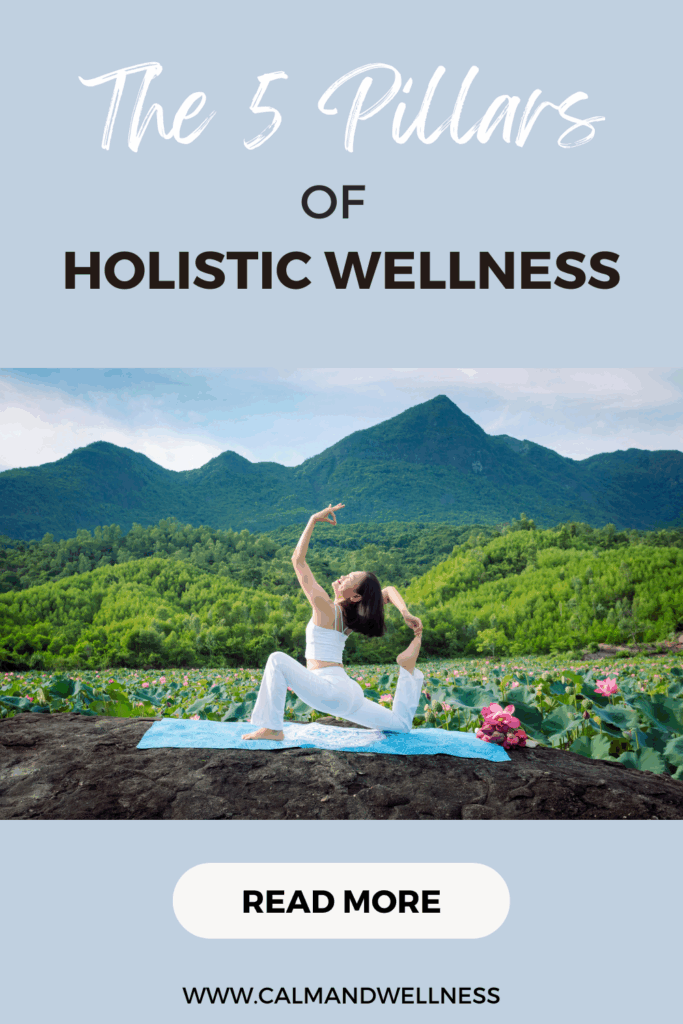
Moving your body is a big part of feeling good, but that doesn’t mean you have to dive into hardcore workouts or sweat buckets at the gym (not everyone likes that environment ! )
In fact, some of the most powerful forms of movement are the gentlest, think yoga, tai chi, these practices blend motion, breath, and mindfulness in a way that nourishes both body and soul.
They help you stretch and strengthen, sure but they also soothe your nervous system and boost your connection to how your body really feels.
Start by tuning into what your body’s asking for:
🧿 Craving a slow stretch?
🧿 A peaceful walk?
Choose what feels right for you, not what burns the most calories and try linking your breath to your movement…..it’s amazing how much more focused and grounded that makes you feel.
5. Mindfulness and Meditation Techniques for Beginners
Meditation doesn’t have to be a long, complicated practice.
In fact, just starting with 3-5 minutes a day can make a big difference.
The core of all meditation practices is … your breath! Focus on that, simply notice the natural rhythm of inhaling and exhaling.
Whenever your mind starts to wander (and it will), gently bring it back to your breath, this little practice is like a workout for your mind, helping to manage stress and boost focus.
The best part? You can sneak in mini moments of mindfulness throughout your day.
To make your meditation routine even more inviting, create a cozy little space at home just for it, maybe a cushion in a quiet corner, or just a spot with a few meaningful objects that ground you.
6. Natural Approaches to Stress Management
Adaptogenic herbs like ashwagandha, holy basil, and rhodiola are like nature’s little helpers for building stress resilience.
When used consistently, they can help your body adapt to stress over time, if you’re new to adaptogens, chatting with a herbalist can help you figure out which ones work best for you.
Essential oils are another great tool for managing stress naturally, lavender is perfect for calming, rosemary can boost mental clarity, and frankincense is grounding. You can use these oils in a diffuser or dilute them in a carrier oil for a relaxing massage, if you are interested in learning more about this topic you can read our quick guide: How To Start Aromatherapy at Home.
7. Tracking Progress on Your Holistic Journey
One of the easiest and budget friendly things you can do is ….. start a WELLNESS JOURNAL !
Track not just physical changes but also shifts in your energy, mood, sleep quality, and mental clarity, jot down patterns, triggers, dreams, and any “aha” moments that pop up as you introduce new practices into your life.
If you’re into tech, there are some great apps out there for tracking holistic health, they can complement your journal and help you spot connections between different wellness factors.
Need any tips about what to write? You can start here:
- Which area of your life feels out of balance?
- What would more harmony look like for you?
- Choose one small step you would like to improve and write a short plan to achieve that…. don’t forget that goals should be realistic !
- Experiment with different tools, notice how you feel and track the progress
5. Final considerations
Embarking on a holistic health journey is not about perfection……it’s about integration and balance!
I encourage you to start with just one area from this guide that resonates most with you and gradually expand your holistic practices, your body, mind, and spirit will thank you as you develop a more harmonious and fulfilling relationship with your health!
This guide provides general information about holistic health approaches and is not intended to replace personalized medical advice. Always consult qualified healthcare professionals before making significant changes to your health regimen, especially if you have existing health conditions.
A truly holistic approach involves researching the evidence, consulting qualified practitioners, and making informed decisions rather than assuming anything natural is automatically beneficial.
RELATED POSTS

19 Natural Ingredients for Hair Care That Actually Work (And Why You’ll Never Go Back)
Okay, real talk. If you’ve ever stared at the back of a shampoo bottle and felt like you needed a chemistry degree to understand it… you’re not alone. Between the sulfates, parabens, and mystery “fragrance”…
